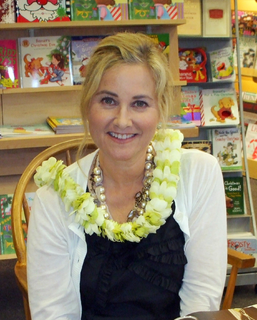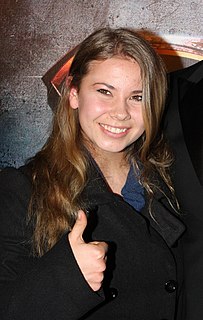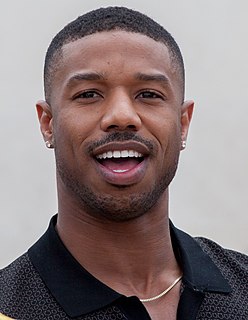A Quote by Jim Jarmusch
I like actors who just become that person and then react, and Adam [Driver] is completely reactive in that way. So every day working with him was really a pleasure. And he's in almost every scene in the film, so the poor guy had to work the - almost the entire 30 days of our film shoot. But, yeah, he was really a pleasure, and I really love what he - how he embodied this character.
Related Quotes
I think these are such different films that it's hard to compare, because with Quentin we were all just like, it was like a party every day, you know, it was like that film was just like silly, it was just really for fun, it was really, it wasn't, you know, to make a huge impact. I t was just we wanted to have fun and go to work every day and do a fun movie. And this is like huge, I mean, this is like huge studio film, there's a ton of action, it's like really hard work.
I was actually losing about a pound a week which was really wonderful. It was a really nice, and good, and healthy way to do it. And I still got to eat my chocolate every day which was wonderful, although I haven't had a drink in a really, really, really long time. I love being outside and working out, and I sometimes jog with my husband, and sometimes I jog with one of my daughter's best friends, and it's incredible. I was able to do Pilates for the first time in my life, which is almost better than sex. Not quite, but almost.
When I got onto set with him we were given a folder of storyboards. I thought that was pretty incredible because I hadn't worked with anybody who used storyboards before so he obviously had a very precise way as to how he visualized the film from the very beginning. It was every scene, but to his credit he was incredibly collaborative and gave us many opportunities to have our own input and to change things with him, so it was a really great way of working.
[Directing first film:] I was terrified, it was really very scary because there is a lot of responsibility. I think I was terrified because I wanted it to work so much. A lot of actors direct movies but I thought the stakes were kind of higher for me because I really, really cared. [...] I just worked as hard as I possibly could on every single thing, every single day. I said that if this failed it would not be because I didn't work as hard as I possibly could...every day.
I really loved it because it really informed his way of seeing my character and the story. If you look closely he always had this metaphor of an egg, of a little chick pecking her way out of a shell, and in one scene in the kitchen there are all these white plates on a wall and then in the middle there is a yellow plate so even that looks like an egg. And a lot of the furniture was almost sculpted in that way as well. It was really cool to see that.
I became passionate about nature filmmaking when I graduated from UCLA, and one of the things I always wanted to do was shoot really high quality film, so I got into time-lapse photography - so that means when you shoot a flower, you're shooting, like, one frame every twenty minutes, so that's basically two seconds of a film per day.
I always thought the piano scene was kind of unique to shoot because we were actually able to film with the playback of the actual song. And that was quite amazing because it almost made it easier - music is usually something that is added after filming has finished so to be able to shoot a scene with music was really wonderful.
Do you really need to mentally label every sense perception and experience? Do you really need to have a reactive like/dislike relationship with life where you are in almost continuous conflict with situations and people? Or is that just a deep-seated mental habit that can be broken? Not by doing anything, but by allowing this moment to be as it is.
Soap operas are like boot camps for film actors, so I really learned a lot. It was a masterclass in working for camera. I made myself watch myself every day. I would sort of try and be objective about it and critique myself a little. There's a lot more skill set than people realize in soap operas. They shoot, like, 35 scenes a day.




































